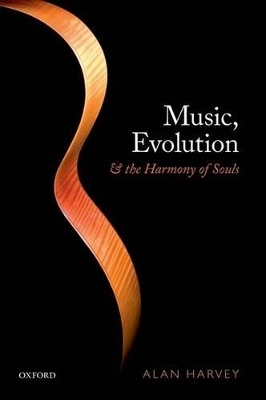
Music, evolution, and the harmony of souls
Oxford University Press (Verlag)
978-0-19-878685-6 (ISBN)
Music is central to human cultural and intellectual experience. It is vitally important for the welfare of human society and - this book argues - should become more widely accepted in our community as a mainstream educational and therapeutic tool.
This book explores the importance of music throughout human evolution, and its continued relevance to modern-day human society. Throughout, the emphasis is on the origin of music and how (and where) it is processed in our brains, exploring in detail the genetic and cultural evolution of modern, loquacious humans, how we may have evolved with unique neural and cognitive architecture, and why two complementary but distinct communication systems - language and music - remain a human universal.
In addition the book explores, in some depth, the different theories that have been put forward to explain why musical communication was (and remains) advantageous to our species, with a particular emphasis on the role of music and dance in enhancing altruistic and prosocial behaviours. The author suggests that music, and the social harmonization it brings, was of vital importance in early humans as we became more and more individualized by the emergence of modern language and the modern mind, and the realization that we are mortal.
'Music, Evolution, and the Harmony of Souls' demonstrates the evolutionary sociobiological importance of music as a driver of cooperative and interactive behaviour throughout human existence, and what this evolutionary imperative means to twenty-first century humanity and beyond, from social and medical/neurological perspectives
Born in London, educated at Forest School, then Emmanuel College, University of Cambridge. PhD in visual neurophysiology, Australian National University, Canberra. After postdoctoral work in the USA and at Flinders University in South Australia, moved to The University of Western Australia in 1984. Now Emeritus Professor in the School of Anatomy, Physiology and Human Biology. Main experimental laboratory interests are in neural development, neurotrauma and neurotherapy, the research primarily focused on the CNS, with an emphasis on the visual system and spinal cord. Also passionate about music and over the past 45 years or so has sung in numerous choirs and played many concerts as a solo artist or as a member of various folk or rock bands. Has contributed to a number of recordings/CDs. Currently sings with Perth Symphonic Chorus and recently travelled to Singapore and to Carnegie Hall in New York to sing with the choir.
1: Introduction: What is music, what is this book about?2: How the brain processes music3: Brains and the evolution of Homo sapiens4: Why do we have music as another communication system?5: Music, altruism and social cooperation6: The consequences of owning a modern mind7: Music, development and education8: Music, therapy and old age9: Coda: Homo sapientior?List of Illustrations
| Erscheinungsdatum | 03.02.2017 |
|---|---|
| Verlagsort | Oxford |
| Sprache | englisch |
| Maße | 181 x 253 mm |
| Gewicht | 736 g |
| Themenwelt | Kunst / Musik / Theater ► Musik ► Musiktheorie / Musiklehre |
| Geisteswissenschaften ► Psychologie ► Sozialpsychologie | |
| Naturwissenschaften ► Biologie ► Evolution | |
| Naturwissenschaften ► Biologie ► Zoologie | |
| ISBN-10 | 0-19-878685-9 / 0198786859 |
| ISBN-13 | 978-0-19-878685-6 / 9780198786856 |
| Zustand | Neuware |
| Informationen gemäß Produktsicherheitsverordnung (GPSR) | |
| Haben Sie eine Frage zum Produkt? |
aus dem Bereich


